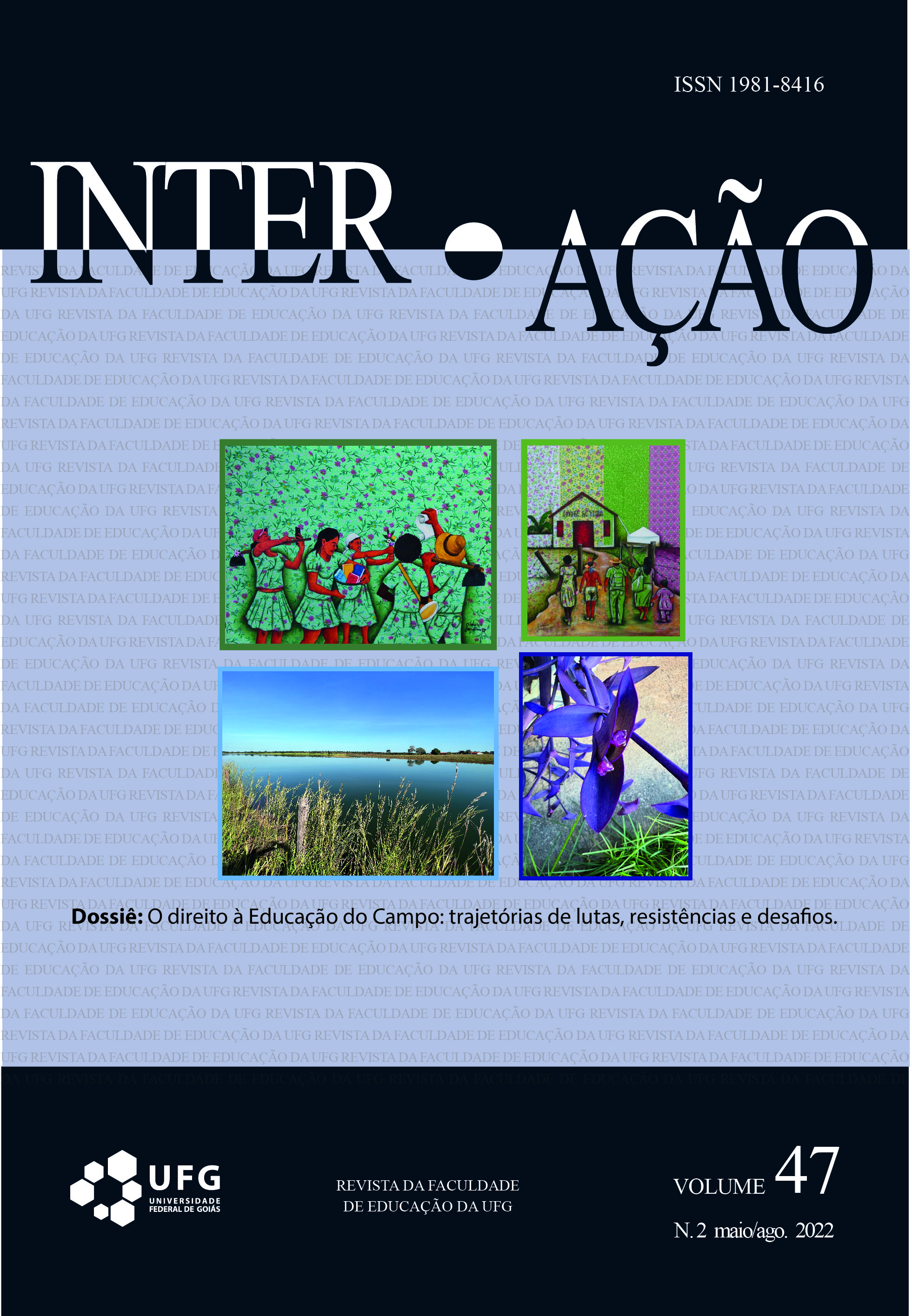CLOSING SCHOOLS AIMED AT COUNTRYSIDE IN THE AMAZON CONTEXT: THE RIGHT TO EDUCATION SUBVERTED TO HEGEMONIC INTERESTS IN RONDÔNIA
DOI:
https://doi.org/10.5216/ia.v47i2.71478Abstract
The research has a qualitative approach, aimed to analyze factors that caused a significant number of school closures located in rural areas in the Amazon region, North of Brazil, state of Rondônia, in the period from 2000 to 2020. Does schools for rural children and youth in the state of Rondônia, from the beginning of the 21st century, correspond to the realization of agribusiness purposes? Among the sources used were bibliographic materials, media news and documents – Statistical Synopsis of Basic Education, Agricultural Censuses, data from the Brazilian Institute of Geography and laws. The closing of schools in rural areas is an event marked by different interests, either by the absence of public educational policies for the peasants, or by the joining of schools in nucleation projects.
KEYWORDS: Rural Schools. Peasant Education. School Closings.
Downloads
Published
How to Cite
Issue
Section
License
Copyright (c) 2022 Silvana de Fátima dos Santos, Josemir Almeida Barros

This work is licensed under a Creative Commons Attribution-NonCommercial 4.0 International License.
Inter-Ação uses the Creative Commons Attribution 4.0 License for Open Access Journals (Open Archives Initiative - OAI) as the basis for the transfer of rights. Open access means making documents available on the Internet free of charge, so that users can read, download, copy, distribute, print, search, or link to the full text of documents, process them for indexing, use them as input data for software programs, or use them for any other lawful purpose, without financial, legal, or technical barriers.
Authors publishing in this journal agree to the following conditions:
1) Authors retain copyright and grant the journal the right of first publication, with the work simultaneously licensed under the Creative Commons Attribution License, which permits redistribution of the work with attribution and first publication in this journal.
2) Authors are permitted to enter into additional, separate agreements for non-exclusive distribution of the version of the work published in this journal (e.g., for publication in an institutional repository or as a book chapter), with attribution and first publication in this journal.
3) Authors are permitted and encouraged to publish and distribute their work online (e.g. in institutional repositories or on their home page) at any time before or during the editorial process, as this may generate productive changes as well as increase the impact and citation of the published work.















